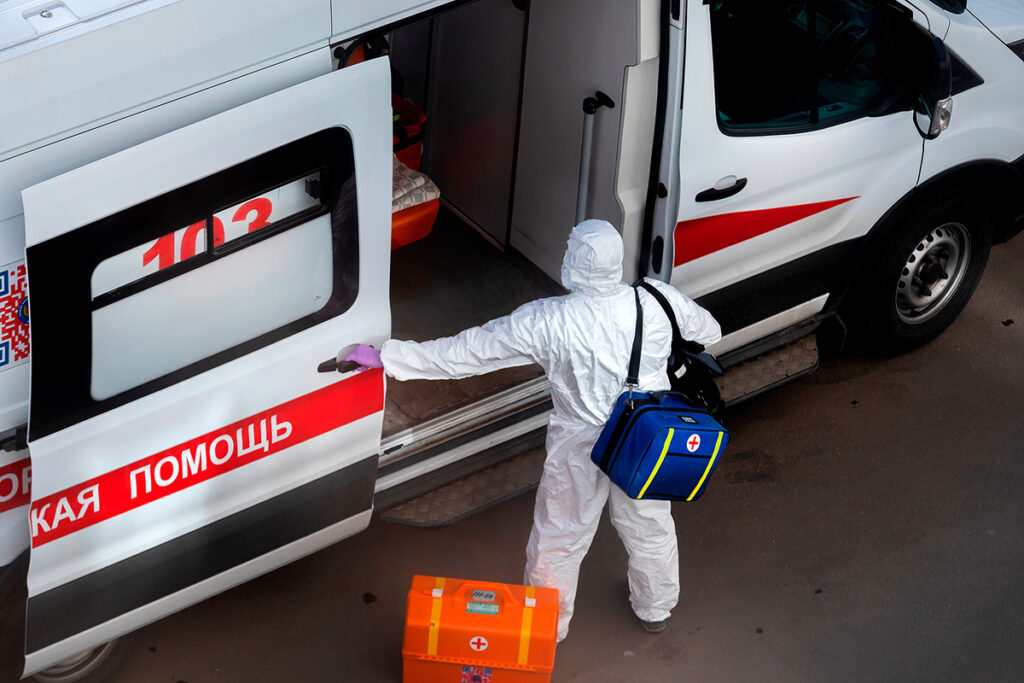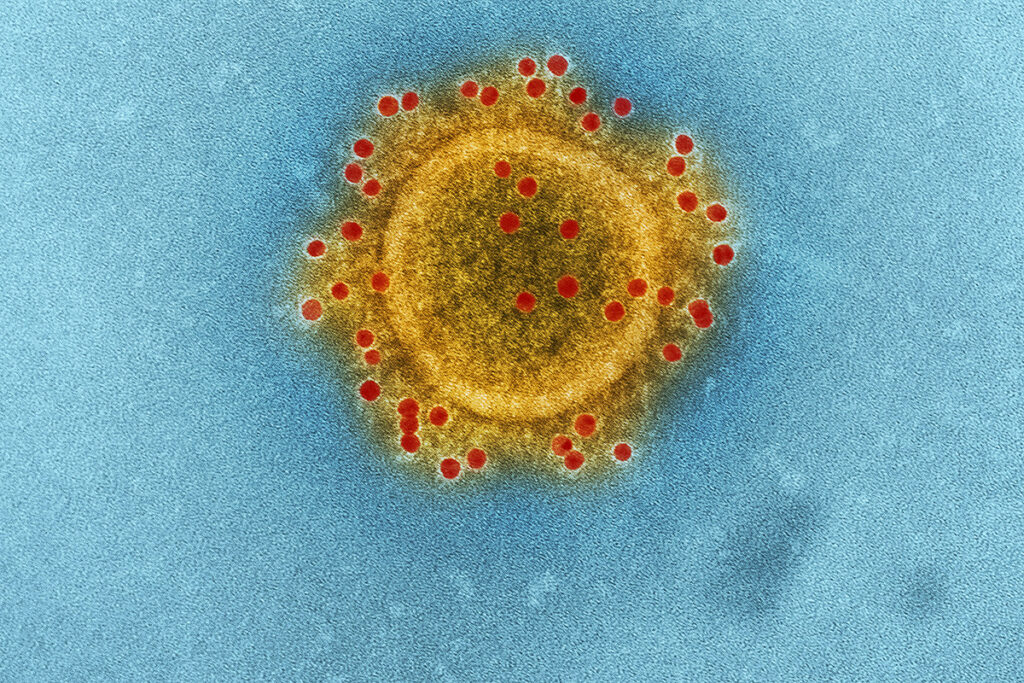Scientific Background
COVID-19 disrupts the function of interferon beta (IFN-β), a natural antiviral component of the immune system. If a patient in response to a coronavirus infection produces few or no IFN-β molecules, then there is a high likelihood of a severe course of the disease, hospitalization, and death.
In different countries, doctors are conducting experimental treatment with interferon beta-1a drugs to compensate for the lack of patients’ IFN-β molecules. Aerosol and injection forms are used.
An open-label, randomized trial, early treatment (up to 5-10 days of symptom onset) has been found to improve survival and accelerate recovery. Nevertheless, late treatment (after 10 days from the onset of symptoms) intensifies the cytokine storm, increases mortality, and does not affect the recovery rate.
However, there are no blind, placebo-controlled studies that are the foundation of evidence-based medicine. An international team of scientists has closed this scientific gap.
Study Design
Scientists conducted a double-blind, randomized, placebo-controlled study in 63 hospitals in five countries: USA, Japan, South Korea, Singapore, Mexico.
The study involved 969 hospitalized patients over 18 years of age with a confirmed PCR COVID-19 test. One group of participants (487 people) received an experimental treatment – subcutaneous injection of interferon beta-1a. Another group (482 people) received a placebo injection with saline. Additionally, all participants in both groups received standard remdesivir treatment.
The study excluded people whose liver status indicators – AST and ALT – were five times higher than usual. Patients with impaired renal function were also excluded from the study. It happens because the injection of IFN-β increases the load on these organs: the drug is metabolized in the liver and excreted by the kidneys.
Time To Start Treatment
The median duration of COVID-19 symptoms in participants before study entry was 8.7 days (4.4 standard deviations). However, since the start time of шnterferon-beta-1a treatment from the onset of symptoms is crucial, it is important to see from what data this figure is derived.
For the group receiving IFN-β (487 people):
- started treatment earlier than 5 days after the onset of symptoms – 118 people (24%);
- from 6 to 8 days – 143 people (29%);
- from 9 to 11 days – 117 people (24%);
- more than 12 days – 102 people (21%).
Data were taken from supplementary research materials (p. 24).
Research Results
28-day mortality:
- in the group receiving interferon beta-1a – 4% (21 people);
- in the group receiving placebo – 3% (16 people).
The average time to recovery in both groups was the same – 5 days. Also, in all groups, patients of moderate severity had the same average time to clinical improvement by one level according to the WHO scale – 4 days. In patients in serious condition, this indicator differed:
- in the group that received IFN-β – 15 days;
- in the placebo group – 5 days.
The average length of hospital stay in patients of moderate severity was the same in both groups – 6 days. In patients in serious condition, this indicator differed:
- in the group that received IFN-β – 28 days;
- in the placebo group – 10 days.
The average need for supplemental oxygen in patients of moderate severity:
- in the group that received IFN-β – 6 days;
- in the placebo group – 8 days.
A similar indicator for patients in serious condition:
- in the group that received IFN-β – 28 days;
- in the placebo group – 22 days.
Side effects from the treatment have been reported:
- in the group that received IFN-β – 39% (172 people);
- in the placebo group – 32% (138 people).
It is important to note that these are the average data for all patients, regardless of the time of initiation of treatment from the moment of onset of symptoms.
Unfortunately, it is impossible to find the data depending on the start of treatment – the scientists left empty values in the corresponding tables in additional research materials. For example, see Table 10 Time to Patient Recovery (page 69). We asked the study authors to correct this inaccuracy and supplement the published materials.
Patient Randomization Results
All study participants were randomly assigned to either the interferon beta-1a treatment group or the placebo group.
After processing the results of the study, it was found that in the IFN-β group, in general, there were more people with concomitant diseases:
- type 2 diabetes: IFN-β group – 19 people, placebo group – 11 people;
- coronary heart disease: IFN-β group – 20 people, placebo group – 2 people;
- hypertension: IFN-β group – 25 people, placebo group – 19 people;
- chronic kidney disease: IFN-β group – 8 people, placebo group – 3 people;
- obesity: IFN-β group – 21 people, placebo group – 22 people.
Conclusions
Late initiation of interferon-beta-1a treatment worsens survival in COVID-19 patients and does not accelerate recovery.
Useful article, necessary information? Share it!
Someone will also find it useful and necessary:



